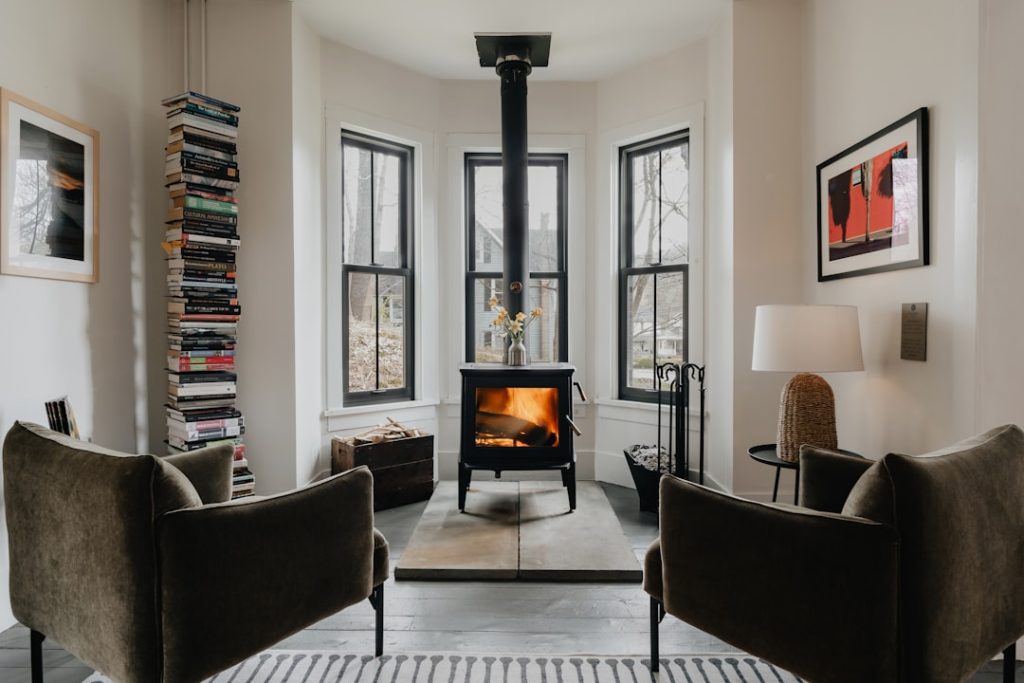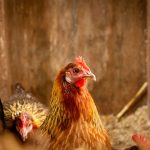Chickens require specific care to survive cold weather conditions. As hardy birds, they can generally withstand low temperatures, but proper management is essential to maintain their health and productivity during winter. Chickens regulate their body temperature by fluffing their feathers to create an insulating air layer.
However, they still need additional support to thrive in cold environments. Key factors for chicken care in cold weather include:
1. Adequate shelter: A dry, draft-free coop protects chickens from harsh winds and wet conditions, preventing frostbite and other health issues.
2. Access to fresh water: Ensuring a constant supply of unfrozen water is crucial for hydration and overall health. 3.
Proper nutrition: A balanced diet helps chickens maintain energy levels and stay healthy during winter. 4. Sunlight exposure: Access to natural light helps regulate internal body temperature and supports overall well-being.
5. Health monitoring: Regular observation of behavior and physical condition is important, as cold weather can increase susceptibility to illness and stress. By addressing these needs, chicken owners can help their flocks survive and thrive during the winter months.
Understanding and implementing appropriate cold weather care practices is essential for maintaining a healthy and productive flock throughout the year.
Table of Contents
- 1 Providing appropriate shelter for chickens during winter
- 2 Insulating the chicken coop to maintain warmth
- 3 Using heat sources to keep chickens warm
- 4 Providing extra bedding and nesting materials
- 5 Ensuring access to fresh water and proper nutrition
- 6 Monitoring the health and behavior of chickens during winter
- 7 FAQs
- 7.1 What are the best ways to keep chickens warm in the winter time?
- 7.2 How can I insulate my chicken coop for the winter?
- 7.3 Is it safe to use heat lamps or heaters in a chicken coop?
- 7.4 What type of bedding should I use to keep my chickens warm in the winter?
- 7.5 Why is ventilation important for keeping chickens warm in the winter?
Key Takeaways
- Chickens need extra care in cold weather to stay healthy and comfortable
- Providing a well-insulated and draft-free shelter is crucial for chickens in winter
- Insulating the chicken coop with materials like straw or hay can help maintain warmth
- Heat sources like heat lamps or heated pads can be used to keep the coop warm
- Adding extra bedding and nesting materials can provide additional warmth and comfort for chickens
- Ensuring access to fresh water and a balanced diet is essential for chickens in winter
- Regularly monitoring the health and behavior of chickens is important during the winter months
Providing appropriate shelter for chickens during winter
Insulation and Ventilation
A well-constructed chicken coop is essential for protecting your flock from the cold, wind, and wet conditions that come with winter weather. The coop should be insulated and draft-free, with proper ventilation to prevent moisture buildup and ammonia levels from rising.
Coop Design and Size
It’s important to ensure that the coop is well-ventilated without being drafty, as excessive drafts can lead to respiratory issues in chickens. Additionally, the coop should be raised off the ground to prevent moisture from seeping in and causing damp conditions that can lead to frostbite and other health issues. The size of the coop is also important, as overcrowding can lead to stress and aggression among the flock.
Comfort and Hygiene
Chickens need enough space to move around comfortably and roost at night without feeling cramped. Providing roosting bars and nesting boxes inside the coop will give your chickens a place to rest and lay eggs, while also keeping them off the cold ground. It’s also important to keep the coop clean and dry, as damp conditions can lead to health issues such as respiratory infections and frostbite.
By providing appropriate shelter for your chickens during the winter, you can help them stay warm, dry, and healthy throughout the colder months.
Insulating the chicken coop to maintain warmth

Insulating the chicken coop is essential for maintaining warmth and protecting your flock from the cold temperatures of winter. Proper insulation helps to retain heat inside the coop, keeping your chickens warm and comfortable even when it’s freezing outside. There are several ways to insulate a chicken coop, including adding insulation material to the walls, ceiling, and floor.
Common insulation materials include foam board, fiberglass batts, or even recycled denim insulation. It’s important to ensure that any insulation material used is non-toxic and safe for chickens, as they may peck at or ingest it. In addition to insulating the walls, ceiling, and floor, it’s important to seal any gaps or cracks in the coop to prevent drafts and moisture from entering.
This can be done using caulk or weather-stripping around windows, doors, and vents. Proper insulation and sealing will help maintain a comfortable temperature inside the coop and reduce the risk of frostbite and other cold-related health issues in your flock. Insulating the chicken coop is an important step in providing a warm and comfortable environment for your chickens during the winter months.
Using heat sources to keep chickens warm
In some cases, especially in extremely cold climates, it may be necessary to use heat sources to keep chickens warm during the winter. There are several options for providing supplemental heat in the chicken coop, including heat lamps, radiant heaters, or heated pads. When using heat sources, it’s important to place them in a safe location where they cannot come into contact with flammable materials or be knocked over by the chickens.
Additionally, it’s crucial to monitor the temperature inside the coop regularly to ensure that it stays within a safe range for your flock. It’s important to note that while supplemental heat can be beneficial in extreme cold, it’s not always necessary or recommended. Chickens are naturally equipped to handle cold temperatures by fluffing up their feathers and huddling together for warmth.
Using heat sources excessively can actually make chickens less able to tolerate cold temperatures, as they may become dependent on the artificial heat. Additionally, heat sources can pose a fire hazard if not used properly, so it’s important to follow safety guidelines and monitor them closely. Before using heat sources in the chicken coop, it’s best to consult with a poultry expert or veterinarian to determine if it’s necessary for your specific situation.
Providing extra bedding and nesting materials
During the winter months, providing extra bedding and nesting materials in the chicken coop is essential for keeping your flock warm and comfortable. Bedding materials such as straw, hay, or wood shavings provide insulation against the cold ground and help absorb moisture, keeping the coop dry and comfortable. Nesting materials such as shredded paper or dry grass provide a cozy place for hens to lay their eggs and keep them warm until they are ready to hatch.
It’s important to regularly clean and replace bedding materials to prevent moisture buildup and reduce the risk of health issues such as respiratory infections. In addition to providing extra bedding and nesting materials inside the coop, it’s also important to provide a windbreak outside the coop to protect your flock from harsh winds and cold temperatures. This can be done using bales of straw or hay stacked around the perimeter of the coop to create a barrier against wind and snow.
By providing extra bedding and nesting materials, both inside and outside the coop, you can help your chickens stay warm, dry, and comfortable throughout the winter months.
Ensuring access to fresh water and proper nutrition

Access to Fresh Water is Crucial
Chickens need access to clean water at all times, as dehydration can lead to health issues such as reduced egg production and increased susceptibility to illness. In cold weather, it’s essential to regularly check waterers for freezing and provide a heated water source if necessary. Heated waterers or adding a small amount of apple cider vinegar to the water can help prevent freezing and keep water available for your flock.
Proper Nutrition is Essential
In addition to fresh water, providing proper nutrition is vital for keeping chickens healthy during the winter. Chickens require a balanced diet that includes a mix of grains, protein, vitamins, and minerals to maintain their energy levels and stay healthy in cold weather. Feeding a high-quality layer feed supplemented with scratch grains, mealworms, or kitchen scraps can help provide your flock with the nutrients they need to stay healthy during the winter months.
Monitoring and Adjusting Their Diet
It’s also important to monitor their food intake closely and adjust their diet as needed based on their activity level and overall health. By ensuring access to fresh water and proper nutrition, you can help your chickens stay healthy and productive throughout the winter.
Monitoring the health and behavior of chickens during winter
Monitoring the health and behavior of your chickens during the winter is essential for identifying any potential issues early on and providing them with the care they need. Cold weather can make chickens more susceptible to illness and stress, so it’s important to keep a close eye on their overall well-being throughout the winter months. Regularly checking for signs of illness such as lethargy, decreased appetite, or abnormal droppings can help you identify any health issues early on and take appropriate action.
In addition to monitoring their physical health, it’s also important to observe their behavior closely. Chickens may exhibit signs of stress or discomfort in cold weather, such as huddling together for warmth or showing signs of aggression due to overcrowding or lack of stimulation. Providing enrichment activities such as hanging treats or providing dust baths can help keep your flock active and engaged during the winter months.
By monitoring the health and behavior of your chickens closely, you can ensure that they stay healthy, happy, and comfortable throughout the colder months. In conclusion, understanding the specific needs of chickens in cold weather is essential for providing them with the care and shelter they need to thrive during the winter months. By providing appropriate shelter, insulating the coop, using heat sources when necessary, providing extra bedding and nesting materials, ensuring access to fresh water and proper nutrition, and monitoring their health and behavior closely, you can help your flock stay warm, dry, healthy, and productive throughout the winter.
With proper care and attention, your chickens can continue to thrive even in cold weather conditions.
If you’re looking for ways to keep your chickens warm in the winter, you might also be interested in learning about the best foods to feed your ducks. Check out this article on what should you feed ducks for some helpful tips on keeping your feathered friends healthy and happy during the colder months.
FAQs
What are the best ways to keep chickens warm in the winter time?
Some of the best ways to keep chickens warm in the winter time include providing a well-insulated coop, using heat lamps or heaters, providing extra bedding, and ensuring good ventilation.
How can I insulate my chicken coop for the winter?
You can insulate your chicken coop for the winter by adding extra insulation to the walls, ceiling, and floor. You can also use draft excluders and weather stripping to seal any gaps or cracks.
Is it safe to use heat lamps or heaters in a chicken coop?
It is safe to use heat lamps or heaters in a chicken coop as long as they are installed properly and used according to the manufacturer’s instructions. It’s important to keep them away from flammable materials and to use a thermostat to regulate the temperature.
What type of bedding should I use to keep my chickens warm in the winter?
In the winter, it’s best to use deep bedding such as straw, hay, or wood shavings to keep your chickens warm. This will provide insulation and help to retain heat in the coop.
Why is ventilation important for keeping chickens warm in the winter?
Ventilation is important for keeping chickens warm in the winter because it helps to remove moisture and ammonia from the coop, which can cause frostbite and respiratory issues. Good ventilation also helps to regulate the temperature and prevent the buildup of harmful gases.
Meet Walter, the feathered-friend fanatic of Florida! Nestled in the sunshine state, Walter struts through life with his feathered companions, clucking his way to happiness. With a coop that’s fancier than a five-star hotel, he’s the Don Juan of the chicken world. When he’s not teaching his hens to do the cha-cha, you’ll find him in a heated debate with his prized rooster, Sir Clucks-a-Lot. Walter’s poultry passion is no yolk; he’s the sunny-side-up guy you never knew you needed in your flock of friends!







